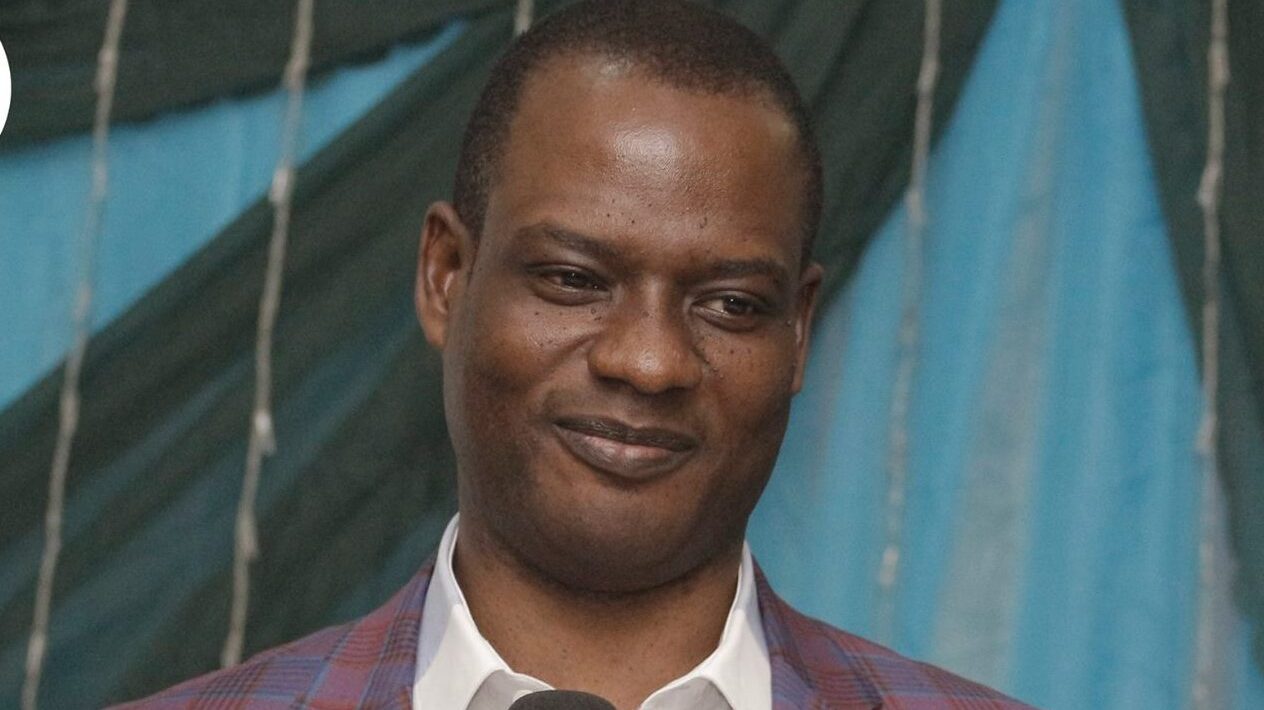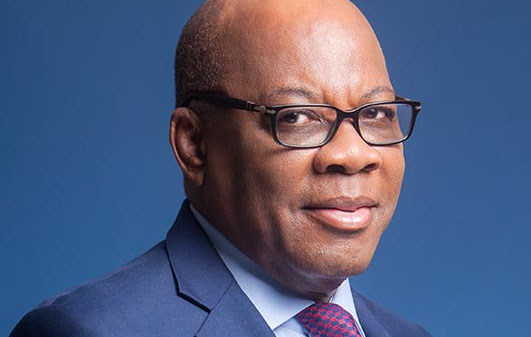
•Dogara slams govs for rejecting reform, urges North to harness resources
•Gov Sule highlights economic risks of VAT removal from FAAC
•Presidency dismisses claims tax reforms will favour South over North
•Bills risk overburdening low-income earners, Agbaje warns
•North will gain from VAT reform, says Global Investment CEO
•Agbakoba urges redistribution of governmental functions for efficiency, devt
•Dickson: Tax bill will pass, like PIB, despite opposition
The controversial Tax Reform Bills proposed by President Bola Tinubu were the focus of discussion yesterday during a special town hall meeting on Channels TV as participants expressed their views on the appropriateness or otherwise of the proposed legislation.
While Chairman of the Presidential Committee on Fiscal Policy and Tax Reforms, Taiwo Oyedele noted that the majority of Nigerians support the tax reform bills, emphasising that any contentious areas could be resolved through dialogue, a former Speaker of the House of Representatives, Yakubu Dogara, criticised state governors for inadequate consultations on laws, dismissed concerns about the timing of reforms and underscored the North’s potential to thrive without reliance on VAT.
This was as an economist, Paul Agbaje, cautioned against increasing VAT and personal income tax for low-income earners but commended the bill’s efforts to streamline taxes and simplify the appeals process. Also, the CEO of Global Investment, Baba Yusuf, praised the reform for its fairness, data-driven approach, and benefits for northern states, urging Nigerians to study the bill independently.
President Bola Tinubu had, in September, transmitted four tax reform bills to the National Assembly for consideration. The bills were developed following the recommendations of Oyedele’s committee, tasked with reviewing existing tax laws.
The bills include the Nigeria Tax Bill 2024, which aims to provide a comprehensive fiscal framework for taxation; the Tax Administration Bill, designed to establish a clear legal framework to reduce disputes; the Nigeria Revenue Service Establishment Bill, which seeks to replace the Federal Inland Revenue Service Act with the Nigeria Revenue Service; and the Joint Revenue Board Establishment Bill, which proposes a tax tribunal and tax ombudsman.
Despite public approval, the bills have faced resistance from state governors, who have called for their withdrawal to allow for more consultations—an appeal rejected by President Tinubu.
Oyedele disclosed that over 90 per cent of Nigerians support the tax reform bills before the National Assembly, stressing that the Presidential Committee on Fiscal Policy and Tax Reforms conducted a survey involving over 3,000 participants, including tax professionals and Chief Financial Officers, both online and offline.
“Guess what? Among those who participated in person, the approval rate was 100 per cent. For those who participated online or watched the recorded session, the approval rate was 92 per cent. Even among those who only followed our updates without participating, the approval rate stood at 76 per cent. Overall, more than 90 per cent of Nigerians support these reforms,” he said.
He added that areas of contention could be resolved through dialogue, noting: “These bills contain over 200 transformative provisions aimed at setting Nigeria on the right path to prosperity. We should not allow one or two provisions, which can be easily discussed and agreed upon, to become bottlenecks.”
Dogara criticised state governors for rejecting the bills, accusing them of crafting laws without adequate consultations. He also claimed that, in some instances, state laws are written “from the living rooms of governors.”
The former Speaker dismissed the governors’ complaints of insufficient consultation on the tax reforms. “I have heard even legislators speaking as if they are spokespersons for the Governors’ Forum,” he said.
“At the state levels, how many people do governors consult when they are making laws? In some cases, state laws are written from the living rooms of governors.”
Dogara also urged northern leaders to rise above regionalism, sectionalism, and religious sentiments, focusing instead on actions that would benefit the country. Addressing concerns about the timing of the reforms, he emphasised that “the right time to act is now.”
“The notion of timing, as I have heard it discussed, is a tragic misconception,” he said. “There is no future, no past—there is only now. Time itself becomes an ally of the primitive forces of social stagnation. If this is the right thing to do, then the time to do it is now, not tomorrow.”
The former Speaker further argued that the North does not need Value Added Tax (VAT) to thrive if its resources are adequately harnessed. Highlighting the potential of the region, Dogara said: “The global market size of dairies and beef is projected to reach $2.5 trillion in the next three years. If we can capture just five per cent of this market, that would amount to $250 billion. We don’t need VAT from any state in Nigeria to survive. The North is the most endowed part of the country.”
He also praised President Bola Tinubu for the establishment of the Ministry of Livestock Development, describing it as a significant move for the North. “No northern leader in my lifetime has done what the President has done for the North by creating this ministry. It has immense potential to transform the region,” Dogara said.
In his closing remarks, the former Speaker called on northern leaders to explore and maximise the region’s resources, saying: “The North can survive. If you doubt it, look at Australia’s wealth from mining minerals. We have all the resources we need.”
Agbaje, for his part, raised concerns about the proposed tax reform bill, particularly its plan to increase Value-Added Tax (VAT) from 7.5 per cent to 15 per cent. He warned that such a move could discourage consumption and worsen Nigeria’s economic challenges.
Agbaje also addressed the bill’s proposal to raise personal income tax rates. While he supported the upper limits, he argued that the current structure places an excessive burden on low-income earners. He suggested implementing a lower tax rate for individuals earning below a specified threshold.
Despite his reservations, Agbaje commended certain aspects of the bill, including its initiative to streamline the appeals process for taxpayers disputing decisions by tax authorities. He also lauded its effort to harmonise taxes by reducing the number of levies from over 60 to a single-digit figure.
Agbaje described the bill as earning a “pass mark,” noting that 90 per cent of Nigerians support it. However, he stressed the importance of addressing its shortcomings before it becomes law.
In contrast, Yusuf expressed strong support for the proposed reform, calling it “one of the best” introduced by President Bola Tinubu.
Yusuf, who hails from Kano State, highlighted the reform’s focus on equity, balance, and data-driven decision-making, which he said would significantly benefit northern Nigeria.
He pointed to four key features of the bill: the exemption of vulnerable individuals from taxes, the allocation of VAT based on derivation or consumption, the promotion of value creation and innovation, and increased benefits for states like Sokoto and Kano from the revised VAT allocation.
Yusuf urged Nigerians to study the bill to understand its benefits rather than relying solely on political leaders for guidance. He also called on leaders to prioritise innovation, value creation, and protecting their gains rather than resorting to rent-seeking and commission-based practices.
Meanwhile, Nasarawa State Governor, Abdullahi Sule, called for a review of the proposed removal of Value Added Tax (VAT) from the Federation Account Allocation Committee (FAAC) framework, aligning his stance with that of the Northern governors and the National Economic Council (NEC).
Governor Sule made this known during a phone-in session at the town hall.
While commending President Bola Tinubu for his efforts to reform the economy, particularly through tax reforms, Sule clarified that the Northern governors were not opposed to the overall reforms but had concerns about specific provisions.
“Let me make it categorically clear, we are not against the tax reforms. There are so many good things about the tax reforms that Mr President is putting forward,” he stated. “We just selected an item out of the tax reforms. It is the VAT that we are talking about, which would be taken out of the FAAC. That is why we are calling for a review of that position.”
He explained that removing VAT from FAAC would allocate 60 per cent of the revenue to derivation, which could disproportionately impact states with lower consumption but higher needs.
Using his experience as a former managing director of major corporations, Governor Sule highlighted the complexities of VAT collection based on consumption. He cited examples from his tenure at African Petroleum, where goods ordered for one location were often redistributed to other regions. This, he argued, complicates determining consumption points and could lead to discrepancies in VAT allocation.
“If you say you are going to go by consumption, you are going to charge the VAT of 200 trucks to Maiduguri. But in reality, only 10 trucks may go there, with the rest distributed to other areas like Ilorin or Sokoto,” he explained. “If you instead go by derivation, the corporate headquarters collecting the VAT are in Lagos, meaning payment would be skewed towards Lagos. Whichever way you pick, you are going into default.”
Governor Sule urged policymakers to reconsider the removal of VAT from FAAC to ensure a balanced and equitable allocation framework. He emphasised the importance of addressing such complexities to prevent unintended economic disruptions.
Also, the Presidency yesterday debunked claims that the proposed tax reform bills would disproportionately enrich Lagos and Rivers states while impoverishing northern states, describing such assertions as unfounded and divisive.
IN a statement issued by Special Adviser to the President on Information and Strategy, Mr Bayo Onanuga, the Presidency characterised the allegations as “reckless” and reaffirmed that the bills are designed to enhance the living standards of all Nigerians, particularly the disadvantaged.
“The tax reform bills will not make Lagos or Rivers more affluent and other parts of the country poorer. Instead, they aim to enhance the quality of life for Nigerians, especially those striving to make a living,” the statement read.
The Presidency expressed concern over the politicisation of the bills, accusing some commentators of spreading misinformation and inciting division. “Since the public debate around the transformative tax bills began, various political actors and commentators have sought to obfuscate the facts, misinforming and misleading the public,” it said.
Addressing specific concerns, the Presidency dismissed claims that government agencies such as NASENI, TETFUND, and NITDA would cease to exist by 2029 following the bills’ passage. It explained that these agencies would continue to be funded through budgetary allocations and a consolidated tax system.
“One reason President Bola Tinubu embarked on the Tax and Fiscal Policy Reforms is to streamline tax administration in Nigeria and make the operating environment conducive for businesses,” the statement added, highlighting the negative impact of multiple taxes on businesses and the economy.
The Presidency clarified that Section 59(3) of the Nigeria Tax Bill proposes a phased consolidation of earmarked taxes into a single tax to support key agencies until 2030, allowing them time to explore alternative funding sources.
“It is a misrepresentation of facts to conclude that changing an agency’s funding source amounts to scrapping it. None of the countries leading globally in education, science, engineering, or information technology have similar earmarked taxes,” it noted.
The statement urged stakeholders and commentators to base their opinions on facts rather than emotions and to participate constructively in the forthcoming public hearings organised by the National Assembly.
President Tinubu welcomed the widespread interest in the bills and called on leaders across the country to engage in productive dialogue. “The imperative of reforming our outdated tax laws and administration is not in doubt if we are to achieve the growth and development needed for our country,” the Presidency stated.
This came as Senator Seriake Dickson, representing Bayelsa West Senatorial District, assured Nigerians that the bills would be passed into law despite opposition, likening its trajectory to that of the Petroleum Industry Bill (PIB), which was enacted with a 3 per cent allocation to host communities instead of the proposed 10 per cent.
Speaking on the necessity of the bills, Dickson argued that public outcry should not hinder the legislative process, as the reforms are essential to addressing imbalances in the nation’s tax system.
“Heavens did not fall when the PIB passed with 3 per cent instead of 10 per cent, and they won’t fall now,” he said. “This Tax Reform Bill is in the national interest and will go through the normal legislative process.”
The senator underscored his support for the bill by highlighting inequities in the current tax distribution system. “Taxes generated in Bayelsa are being paid to Lagos State because of company headquarters’ locations. That must change. If you consume goods or services in Bayelsa—whether making a call, buying cement, or drinking kaikai—the taxes should go to Bayelsa, not Lagos,” he stated.
Dickson, a former governor of Bayelsa, recounted his long-standing advocacy for a fair tax system, including taking value-added tax (VAT) matters to the Supreme Court. He called on states concerned about potential revenue losses to present their data during public hearings. “Public hearings are for raising concerns with facts, not sentiment. There will be no intimidation—everyone must make their case,” he said.
Addressing fears of opposition, particularly from northern states, Dickson reaffirmed his commitment to national unity, dismissing claims of regional bias. “I don’t engage in regional politics. I am a national politician, and I support what’s best for the country,” he said.
Reflecting on his legislative principles, Dickson cited his opposition to the naira redesign policy and his advocacy for a higher host-community percentage in the PIB. “I act on conviction, not sentiment. When everyone supported the naira redesign, I stood against it because it wasn’t in the national interest. The same applies here,” he said.
The senator urged Nigerians to support the tax reform, describing it as a necessary step towards fairness in revenue allocation. “This country needs a tax system that ensures states receive what they’re due. We cannot allow a few states to retain taxes that belong to others. This bill is about justice, fairness, and progress,” he stated.
Relatedly, Dr. Olisa Agbakoba (SAN), Senior Partner and Head of the Arbitration and Alternative Dispute Resolution (ADR) practice group at Olisa Agbakoba Legal, called for an urgent restructuring of Nigeria’s governance system to enhance efficiency and drive national development.
In a statement, Agbakoba criticised Nigeria’s over-centralised political structure, describing it as a significant impediment to progress. He argued that the current arrangement has contributed to the backlash against the recently proposed Tax Reform Bills.
While acknowledging the bill’s potential to boost revenue by targeting corporate entities and the ultra-wealthy, which he described as a “massive incentive” for the working class, Agbakoba pointed out concerns from Northern Nigeria regarding its revenue-sharing formula. According to him, the North’s argument stems from discrepancies between the tax and oil revenue distribution formula, which he described as “a huge problem” requiring urgent review.
“The North may have a reasonably arguable case,” he said, noting that the region could significantly boost its revenue base through agricultural mechanisation with the right incentives.
Agbakoba proposed a comprehensive devolution of powers and revenue collection responsibilities from the federal government to the states. He suggested that taxes, such as consumption taxes, should remain with the states where they are generated to encourage economic growth driven by local revenue generation rather than shared allocations.
He also criticised the federal government’s involvement in matters such as marriage registration, drivers’ licensing, and basic education, which he said are better handled by state and local governments. Additionally, he called for a redistribution of judicial powers, arguing that the Supreme Court’s excessive jurisdiction over local matters has slowed its efficiency.
Agbakoba reiterated that addressing governance inefficiencies through a balanced redistribution of power and responsibilities across federal, state, and local levels is essential for equitable revenue distribution and sustainable development.
“The most pressing matter in Nigeria is governance,” he said, stressing the need for a system that allows each tier of government to function effectively within its assigned roles for optimal development.






